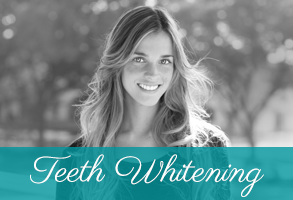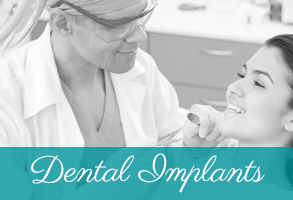

A beautiful smile can have a positive impact on your self-confidence and self-esteem.

How does relaxation work?
When we are faced with a challenge or something we’re afraid of, such as a visit to the dentist, our bodies produce substances, which raise our anxiety. However, we can train our bodies to work against this anxiety, by learning to relax. It’s not possible to be anxious and relaxed at the same time, so learning relaxation helps control our anxiety.
If you are a mother, you may have learned some relaxation techniques in childbirth classes. In fact, almost anyone can learn them. You can practise at home. Some people find that meditation and yoga work well, too.
What is preventive dentistry?
Preventive dentistry is the modern way of reducing the amount of dental treatment necessary to maintain a healthy mouth.
It helps you to keep your teeth. The two major causes of tooth loss are decay and gum disease. The better we prevent or deal with these two problems, the more chance people have of keeping their teeth for life.
The joint efforts of the dentist, the hygienist and the patient, can help to prevent the need for treatment, and so avoid the traditional pattern of fillings and extractions.
A course of treatment may be recommended to get your mouth into good condition, and a maintenance plan will be worked out to help you keep it that way.
Is prevention possible?
Yes. With modern dentistry and constant new developments, it is possible to prevent or considerably reduce dental disease.
Can everybody benefit from preventive dentistry?
Yes. Preventive dentistry will benefit anyone with some of their own teeth. People who don’t have any teeth can also benefit because conditions such as mouth cancer and denture stomatitis can be identified and treated during regular visits to the dentist. It is excellent for children and young people, but it is never too late to start.
What is involved?
Your dentist will first assess your teeth and gums, and discuss with you any treatment that is necessary. The main aim is to help you get your mouth really healthy, to try and prevent any dental problems returning. In a healthy mouth it is unlikely that decay or gum disease will continue to be a problem.
· The hygienist or dentist will thoroughly ‘scale and polish’ your teeth.
· The dentist or hygienist will show you the best methods of brushing and flossing to remove the bacterial ‘plaque’ which forms constantly on your teeth and gums. Plaque is an invisible film of bacteria that forms constantly on the teeth and gums. When you eat or drink something sugary, the plaque turns the sugar into acid, which will cause tooth decay. Plaque will also cause gum inflammation if it is not regularly and thoroughly removed. The hard tartar (calculus) which builds up on the teeth also starts off as plaque.
· You will be advised which oral care products are the best ones for you to use.
· The hygienist will probably discuss diet and any habits such as smoking and drinking with you.
· Your dentist will also make sure that all your fillings are in good repair and there are no rough edges to make cleaning difficult.
Will my dentist recommend treatment?
A ‘preventive dentist’ will often recommend treatment to reinforce a tooth to make sure that it does not break. For example, if the dentist sees that a tooth is cracked, or is weak and in danger of breaking, they may advise a new filling or perhaps a crown or ‘onlay’ to protect it. This is always better than waiting till the breakage happens, and then working out how best to deal with it, perhaps as an emergency.
What else can the dentist and hygienist do to help prevent tooth decay?
Fluoride helps teeth resist decay. If your dentist thinks added fluoride would be useful, they may recommend the application of topical fluoride. They may also suggest the use of fluoride rinses, tablets or drops as an extra help against decay for use at home. Only use these if you have been advised to do so, and follow the instructions carefully.
What are pit and fissure sealants?
The biting surfaces of children’s teeth can be protected by the application of ‘sealants’. These make the tooth surface smoother and easier to clean, and stop decay starting in the difficult to clean areas. (See ‘Tell me about pit and fissure sealants’).
Can diet affect my teeth?
Food and drinks containing sugar cause decay. If you cut down on how often you have sugary snacks and drinks this will help considerably. Foods such as cheese, fruit, nuts and vegetables make good substitutes.
What is dental erosion?
Dental erosion is the loss of enamel caused by acid attack. When the enamel is worn away it can lead to pain and sensitivity. After eating or drinking something acidic, the enamel on your teeth becomes soft for a short time. If you have too many acid attacks your teeth will not have enough time to restore to their natural balance. Over time, you could start to lose the surface of your teeth
Can I prevent dental erosion?
Acidic foods and drinks such as citrus fruit juices and all fizzy drinks such as cola can be harmful if taken often in large amounts. Try to limit acidic food and drinks to meal times.
It is also recommended that you do not brush your teeth for at least one hour after eating or drinking anything acidic, so that they can build up the mineral content again.
Can smoking and drinking affect my teeth and gums?
Yes. Smoking can lead cause tooth staining, gum disease, tooth loss and mouth cancer. If you smoke your dentist may need to visit the dentist or hygienist more often, but the best advice is to try and give up.
Some alcoholic drinks contain high sugar levels and some mixed drinks may contain acids, so they can cause decay or erosion if they are frequently consumed in large amounts.
What can I do at home?
It is very important that you keep up a good routine to keep your teeth and gums healthy at home. The Foundation recommends that you
· brush your teeth twice a day with fluoride toothpaste – this will involve brushing as you have been shown
· floss your teeth – brushing alone only cleans up to about 60 percent of the surface of your teeth. There are other products you can buy to clean between your teeth (they are called ‘interdental brushes’).
· Use a mouthwash – this can help to freshen breath. It can also help to dislodge any food debris.
Is there anything else I can do?
Yes. You can take other steps to help prevent tooth loss, decay and the need for treatment.
· cut down on how often you have sugary snacks and drinks
· Use a straw when you have fizzy drinks – this helps the drink to go to the back of the mouth and reduces the acid attacks on the teeth.
· Chew sugar-free gum – it stimulates saliva and stops your mouth drying out and can help to prevent dental decay and erosion.
· visit your dentist at least once a year
What oral care products should I use?
There are now many specialised formulations of toothpaste available including tartar control, toothpaste for sensitive teeth and total care toothpastes.
Mouthwashes can be beneficial and again, there are many different types including ones with anti-bacterial agents.
It is usually recommended that adults use a toothbrush with a small- to-medium-sized head and soft to medium filaments (bristles).
Some people prefer a powered toothbrush. Powered toothbrushes have been proven to be at least 25 percent more effective than manual brushes at removing plaque. If you are unsure ask your dentist or hygienist for the one that best suits your needs.
Look for products carrying the British Dental Health Foundation’s approved symbol. This means that the claims made by the manufacturer have been independently validated and are clinically proven.
How do I keep my mouth healthy?
To have a healthy mouth you need to
· brush your teeth twice a day with fluoride toothpaste
· cut down on how often you have sugary snacks and drinks
· visit your dentist at least once a year